简体中文
繁體中文
English
Pусский
日本語
ภาษาไทย
Tiếng Việt
Bahasa Indonesia
Español
हिन्दी
Filippiiniläinen
Français
Deutsch
Português
Türkçe
한국어
العربية
Online Trading Scams in Europe Surge as 1,400 Sites Shut
Abstract:European crackdown removes 1,400+ fraudulent trading platforms, exposing AI-built fake broker networks and cross-border call centers targeting investors.
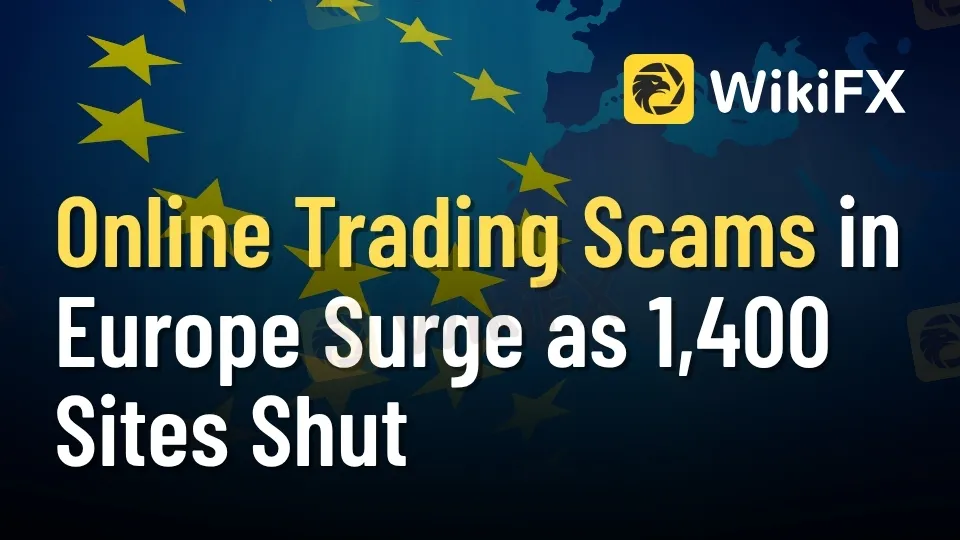
Online trading scams in Europe are organized fraud schemes that use fake broker platforms, call center sales scripts, and AI-generated websites to solicit deposits from retail investors and then block withdrawals or disappear entirely. These schemes matter now because European authorities have just dismantled more than 1,400 illegal domains linked to investment fraud, revealing industrial-scale infrastructure, AI misuse, and cross-border call center operations that persist despite repeated takedowns. This report defines the threat, details current enforcement and trends, and explains the broader impact and what to watch next for investor protection and policy.
What the Scams Are
Online trading scams in Europe typically pose as forex, crypto, or stock brokers, funneling victims from polished domains to aggressive call centers that push large deposits with promises of high returns and “AI-driven” strategies. Many victims discover months later that funds were never invested; platforms block withdrawals, shut down, or demand new payments to unlock balances, a pattern seen repeatedly in Europol- and Eurojust-supported cases. German regulator BaFin reports at least 20 nearly identical AI-branded websites with minimum deposits of €250, none licensed, none with verifiable ownership, illustrating mass-produced fraud templates.

Why it Matters Now
In October 2025, German investigators with BaFin, Europol, and Bulgarian authorities dismantled over 1,400 illegal domains in “Operation Heracles,” following a June 2025 action that blocked about 800 domains; authorities counted roughly 20 million subsequent access attempts, underscoring persistence and scale. Officials say perpetrators increasingly use AI to spin up convincing clone sites at speed, materially raising the baseline sophistication and volume of fraudulent trading platforms. Europol continues cross‑border data work to trace funds, identify call centers, and disrupt payment facilitation, reflecting the scams transnational nature and need for coordinated enforcement.
Broader Impact and Outlook
Victim recovery remains uncertain because many call centers operate from jurisdictions with weak cooperation, limiting asset seizure and restitution despite infrastructure takedowns and digital asset seizures where possible. Regulators are intensifying public warnings about unauthorized investment services, finfluencer promotions, and AI-branded trading offers, linking the threat to wider retail investor protection and digital asset fraud risks. Expect more infrastructure-focused operations, faster domain churn by fraudsters via AI tooling, and continued pressure for stronger payments due diligence and cross‑border financial crime frameworks in the EU.
Expert Insight
BaFins executive Birgit Rodolphe notes that fraudsters are “becoming increasingly professional,” using AI to mass-produce illegal sites that lure investors, aligning with observed clone-site clusters and €250 on‑ramp patterns. Field experience from Europol-supported actions shows that disabling hosting, seizing servers, and tracing facilitators can weaken networks, but sustained deterrence hinges on closing payment channels and targeting call center hubs. For retail investor protection, verifying authorization in official registers and distrusting guaranteed-return “AI” pitches remain the most reliable first-line defenses against fake forex and crypto brokers.

Disclaimer:
The views in this article only represent the author's personal views, and do not constitute investment advice on this platform. This platform does not guarantee the accuracy, completeness and timeliness of the information in the article, and will not be liable for any loss caused by the use of or reliance on the information in the article.
Read more
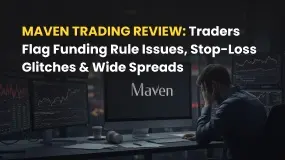
Maven Trading Review: Traders Flag Funding Rule Issues, Stop-Loss Glitches & Wide Spreads
Are you facing funding issues with Maven Trading, a UK-based prop trading firm? Do you find Mavin trading rules concerning stop-loss and other aspects strange and loss-making? Does the funding program access come with higher spreads? Does the trading data offered on the Maven Trading login differ from what’s available on the popular TradingView platform? These are some specific issues concerning traders at Maven Trading. Upset by these untoward financial incidents, some traders shared complaints while sharing the Maven Trading Review. We have shared some of their complaints in this article. Take a look.
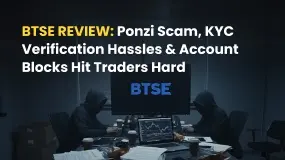
BTSE Review: Ponzi Scam, KYC Verification Hassles & Account Blocks Hit Traders Hard
Have you lost your capital with BTSE’s Ponzi scam? Did the forex broker onboard you by promising no KYC verification on both deposits and withdrawals, only to be proven wrong in real time? Have you been facing account blocks by the Virgin Islands-based forex broker? These complaints have become usual with traders at BTSE Exchange. In this BTSE review article, we have shared some of these complaints for you to look at. Read on!
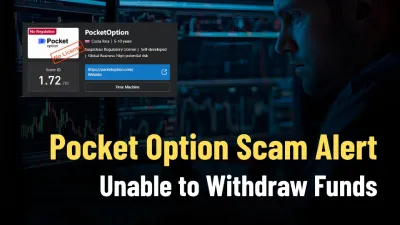
Pocket Option Scam Alert: Unable to Withdraw Funds
Pocket Option Scam Alert: Not regulated claims, suspicious license score, and platform-only trading risks summarized.
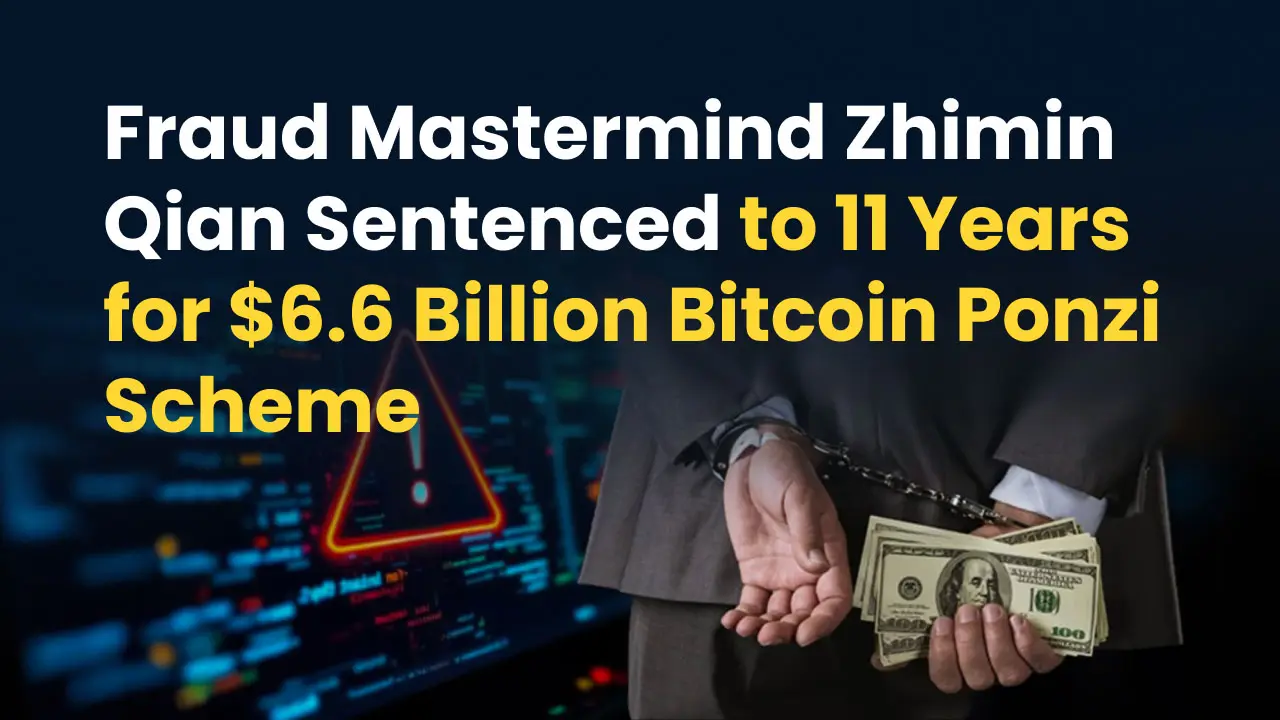
Fraud Mastermind Zhimin Qian Sentenced to 11 Years for $6.6 Billion Bitcoin Ponzi Scheme
Zhimin Qian, known globally as the “Crypto Queen” or “Bitcoin Queen,” has been sentenced to 11 years and 8 months in prison for running a massive $6.6 billion cryptocurrency Ponzi scheme and laundering 61,000 Bitcoins. This landmark case is one of the largest money laundering operations in UK history.
WikiFX Broker
Latest News
2 Malaysians Arrested in $1 Million Gold Scam Impersonating Singapore Officials
Moomoo Singapore Opens Investor Boutiques to Strengthen Community
OmegaPro Review: Traders Flood Comment Sections with Withdrawal Denials & Scam Complaints
An Unbiased Review of INZO Broker for Indian Traders: What You Must Know
BotBro’s “30% Return” Scheme Raises New Red Flags Amid Ongoing Fraud Allegations
The 5%ers Review: Is it a Scam or Legit? Find Out from These Trader Comments
WikiEXPO Dubai 2025 Concludes Successfully — Shaping a Transparent, Innovative Future
Admirals Cancels UAE License as Part of Global Restructuring
Forex Expert Recruitment Event – Sharing Insights, Building Rewards
Exness Broker Expands in South Africa with Cape Town Hub
Currency Calculator



